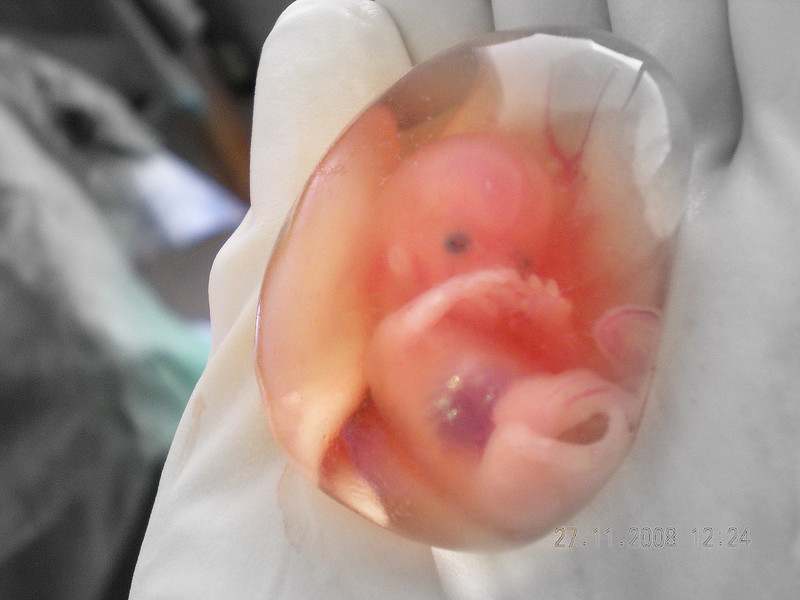The active movement of the fetus is one of the signs that the fetus is growing healthy. However, do not panic when the fetus suddenly stops moving. Try the following trick to get it to move!
Generally, pregnant women can already feel the movement of the fetus at the age of 18-25 weeks of pregnancy. This movement of the fetus will usually be felt more often in the third trimester of pregnancy and will increase when approaching labor or when contractions begin to be felt.
Even so, some conditions sometimes cause the frequency and duration of fetus movement in the womb to decrease or even make the fetus stop moving.
Causes of Fetus Stopping Moving
Before knowing the trick to induce fetal movement, the pregnant mother needs to know the cause of this happening. The fetus suddenly rarely or even stops moving does not necessarily indicate the existence of a dangerous disorder, why?
The following are some causes of the fetus stopping moving that are considered normal:
1. The fetus is sleeping
Usually, the fetus sleeps for about 20-40 minutes and no more than 90 minutes. When sleeping, the fetus will not move. However, when he wakes up, he will be active again.
2. Mother is working
Usually, the fetus becomes more active at night when the mother sleeps between 9:00 p.m. and 1:00 a.m. On the other hand, when the pregnant mother is active, the movement of the fetus tends to decrease and sometimes stops moving.
3. Mother eats less
The fetus tends to actively move after the pregnant mother eats. The problem is, that to move, he needs energy from the food his mother consumes. Well, the fetus can stop or rarely move because it lacks energy because it has not received food from its mother.
4. Anterior fetus position
The position of the fetus facing the mother’s back (anterior position) can make the pregnant mother less able to feel its movements. Usually, this position occurs at the end of the third trimester or when approaching delivery time.
5. Old pregnant
When the pregnancy enters the third trimester, the movement of the fetus will generally decrease slightly or sometimes stop moving temporarily. This is caused by the uterus getting narrower due to the increasing size of the fetus, so there is not enough room for the fetus to move.
Smoking and obesity can also make pregnant women less able to feel the movement of the fetus. In addition to the above causes, causes of the fetus not moving throughout the day can also indicate dangerous conditions, such as:
- The fetus lacks oxygen, for example, because the umbilical cord is wrapped
- Disorders of the placenta, such as placental abruption or tearing of the placenta in the uterus
- The baby died in the womb or stillbirth
Tips and Tricks to Stimulate Fetus Movement
If the pregnant mother feels that the fetus has stopped moving, don’t panic yet, yes. There are some tips and tricks that pregnant mothers can do to get their Little Ones to move again, namely:
- Try talking or playing music to see if there is a movement response from him.
- Drink cold water or eat sweet food. This can usually trigger fetal movement.
- Rest Maybe the pregnant mother is too tired and doesn’t feel the movement of the fetus.
- Try touching or stroking the belly to get it to move.
- Lie down on your left side. This position can facilitate circulation and can trigger the fetus to become more active and move.
If a pregnant mother starts to feel movement from inside the abdomen after practicing the method above, the condition of the fetus is likely fine. However, the pregnant mother should still monitor its movement if it stops moving again.
Conditions Requiring Immediate Medical Attention
pregnant mother needs to be alert when the stimulation given to the fetus does not increase its movement or the fetus still stops moving. pregnant mother also needs to be alert when experiencing the following symptoms:
- The fetus does not move at least 10 times in two hours
- Swelling in the hands, feet, and eyes, the pregnant mother
- Headache lasting more than 24 hours accompanied by blurred vision
- Continuous stomach cramps
- Bleeding from the vagina
- Fever
- Difficulty breathing
- Vomiting and convulsions
- My stomach hurts when touched
If a pregnant mother experiences some of the above, immediately see a doctor. The doctor will perform a series of examinations, including a physical examination and an ultrasound to monitor the fetus’s heart rate and see if there are things that could potentially cause it to be difficult to move, such as the umbilical cord being twisted.
If the test results are normal, the pregnant mother can go home. With a note, pregnant mothers should be more alert and monitor the movement of the fetus every day. When the movement of the fetus decreases or the fetus stops moving again, the pregnant mother should immediately check himself back to the doctor.





